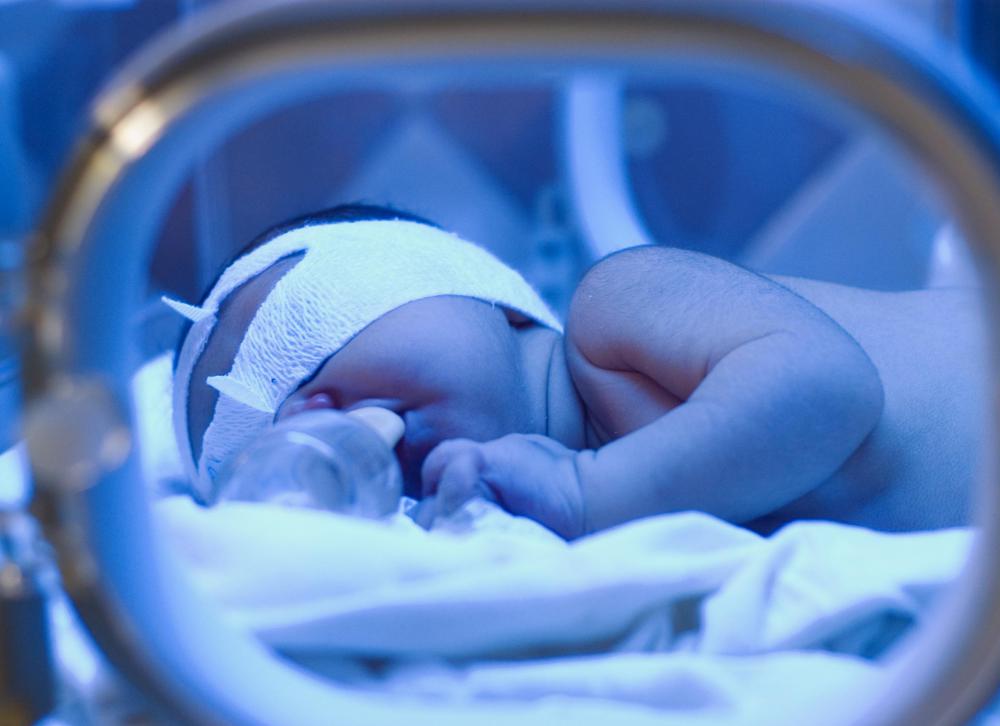At WiseGEEK, we're committed to delivering accurate, trustworthy information. Our expert-authored content is rigorously fact-checked and sourced from credible authorities. Discover how we uphold the highest standards in providing you with reliable knowledge.
What are Preemies?
In humans, a premature infant or preemie is a child born after less than 37 weeks of gestation. The typical gestation for humans in 40 weeks, although perfectly normal babies are born anywhere between 38-42 weeks. Preemies can develop into healthy full grown adults, although they require extra care, especially when they are very young. The term “preemie” is used by many people because it is viewed as less cold or clinical than “premature infant.”
A number of things can cause premature birth, and not all of them are within the control of the mother. Eating a healthy diet and reducing stress will certainly lessen the likelihood of premature delivery, but preemies can also be the result of diabetes, random infection, hypertension, multiple births, or placental separation. When it becomes apparent that a mother is going into premature labor, medical professionals act quickly to save the baby and mother.

Preemies face several challenges which normal babies do not have to contend with. Since their organs and bodies are not fully developed, preemies struggle to breathe, process food, and perform other basic reflexes. One of the primary concerns with preemies is their lungs, which are fragile and not fully formed. Preemies also have trouble getting warm, since they lack body fat, which is why they are kept in incubators.

A number of health problems can appear in preemies, as they are more susceptible to their environment. Many preemies develop jaundice, anemia, infections, stomach problems, apnea, and other issues which can be alarming for parents. These issues become more profound for preemies born on the threshold of viability, which is usually pegged at around 23-24 weeks.

In the developed world, a two pound (800 gram) preemie usually has a good prognosis, if it receives excellent care. Preemies as small as one pound (500 grams) have around a 50% mortality rate, which may be lower in sophisticated facilities which focus on providing care to preemies. If premature labor was caused by problems with the infant, the survival rate may drop even lower. In the developing world, mortality rates for preemies are much higher, due to lack of adequate facilities.

Premature labor can be very scary, since many people associate preemies with very sick babies and unhealthy people. The fact is that if a preemie closer to 37 weeks can be pulled through in the first few critical weeks, he or she can develop into an ordinary person, and other people will probably never guess that the child was born prematurely. Babies born close to 23 weeks, unfortunately, may not fare as well, since they are at risk of severe disabilities, although many come through just fine.
AS FEATURED ON:
AS FEATURED ON:














Discuss this Article
Post your comments